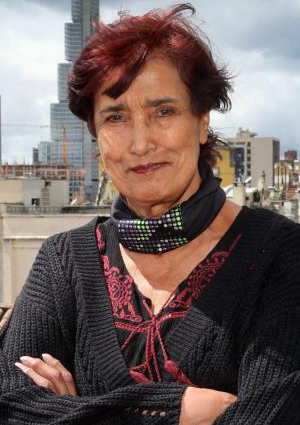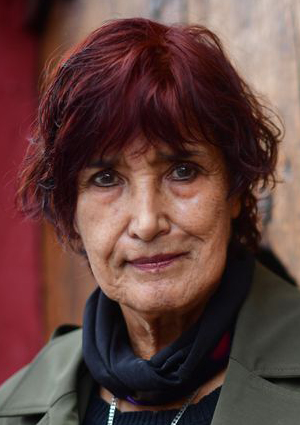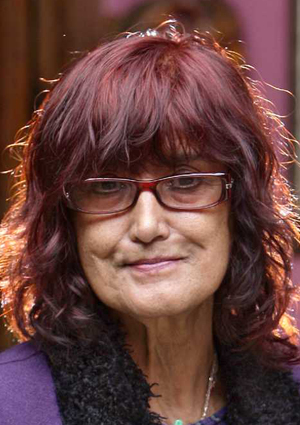Patricia Ariza
Plastic artist, director, actress, playwright, poet and political activist. Patricia Ariza was born on January 27, 1946, in Vélez (Santander). Forced to leave by violence, she moved to Bogotá with her siblings. She studied Art History at the Faculty of Fine Arts of the National University, where she was part of the Nadaist collective and a member of the Communist Youth. In 1969 she received an Honorary Doctorate from the Instituto Superior de Arte de Cuba.
She has an extensive career in playwriting and was president and founder of the Corporación Colombiana de Teatro. Her most outstanding work includes La Kukhualina —which premiered with the Indigenous Group INKAYU of the National Indigenous Organization of Colombia—, El Viento y la Ceniza (Wind and ashes) —which received the Anna Magnani Award in Brazil—, La Calle y el Parche (The street and the gang), Del Cielo a la Tierra (From heaven to earth), Mujeres desplazándose (Women getting around), and Camilo vive (Camilo lives) —in memory of the guerrilla priest Camilo Torres—. She is also the founder of Teatro La Candelaria, among other theater groups.
Ariza has been the director of the Festival de Mujeres en Escena por la Paz (Women on Stage for Peace Festival) and the Festival de Teatro Alternativo (Alternative Theater Festival). She is a political activist for peace, a member of Women for Peace, a member of the National Peace Council, a cultural advisor of Corporación Reiniciar, and a member of The Magdalena Project, an international network of women in contemporary theater.
She has received several local and international awards for her artistic and social work, including the Prince Claus Award (Netherlands), the National Award for the Defense of Human Rights in Colombia in the category Defender for a Lifetime, the GLOU Award from the Women's Meeting of Cadiz, and the Gilder Coigner Award from the Association of Women Directors and Playwrights of the United States.
In July 2022, she was appointed Minister of Culture of Colombia, effective August 7.
The platform Mujeres Confiar writes about her: "The history of artistic and political resistance in Colombia. Poet, playwright, writer, and feminist who has led the demands of women and victims of the armed conflict in the country. A nadaist and survivor of the genocide of the UP, a libertarian woman who breaks all protocols, a poet committed to the country's destiny."










